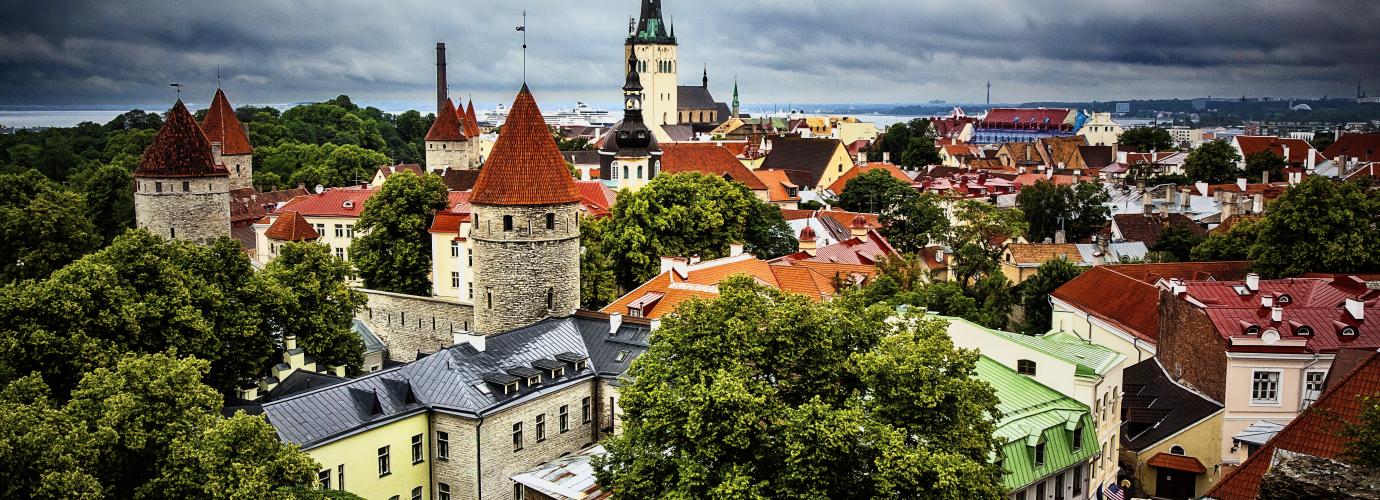Since the restoration of independence, it has been considered necessary to develop a uniform education strategy that would cover the whole spectrum of lifelong learning and several attempts have been made towards creating it (in 1998 and 2001, the draft strategies were discussed by the Riigikogu), but no final results were formulated, mainly for political reasons as the drafts have been perceived as those of the current minister (or the ruling party).
In 2009, in cooperation of three institutions, the Estonian Cooperation Assembly, the Estonian Education Forum and the Ministry of Education and Research, the process for developing a lifelong learning strategy was initiated and in 2011, draft Estonian education strategy for 2012-2020 “The five challenges of Estonian education“ was developed. The document was introduced at national and regional seminars in the framework of the EU funded project Elu5x (Estonian Strategy of Education – Lifelong Learning) with a view to achieving a broader acceptance and implementation of the strategy. The project was run by Estonian Cooperation Assembly.
The elaborate strategy Estonian Lifelong Learning Strategy 2020 equipped with measures and activities was approved by the Government of the Republic on 13 February 2014.
In spring 2018, preparations begun for the development of the new comprehensive education strategy. The Ministry of Education and Research commissioned groups of experts to create vision papers for education, research, youth and language field for the years 2021‒2035. The vision papers focused on three themes: values and responsibilities; prosperity and cohesion; and competitiveness (see the summary of the vision papers). In 2019, an interim evaluation of the lifelong learning strategy was also carried out, which in turn provided input for planning new strategic goals.
The vision papers served as an input for the strategy task forces. In addition to the vision papers of the expert groups, numerous proposals to promote education, science, youth and language were collected during conferences, brainstorming sessions and other thematic events. Stakeholders and wider public have been involved in the strategy development through an (e-)consultation process. The strategy development has moved in the same time frame as other important strategic processes in Estonia, such as the all-encompassing Estonia 2035 (Estonia’s long-term development plan; also the basis for planning the use of the next period’s EU funds).
In November 2021, Estonian Education Strategy 2021–2035 was adopted by the Government. The Education Strategy plays an important role in achieving the general objectives of the national long-term development plan ´Estonia 2035´. The strategy builds on the principle that to achieve the future goals of education in Estonia, it is necessary to maintain and further develop its strengths and address bottlenecks.
The strategy outlines further steps towards lifelong learning and flexibility of learning pathways, varied and accessible learning opportunities, and diverse learning environments. It also strives to ensure that the next generation of qualified school and university teachers, educators, and support specialists have flexible opportunities to enter the profession, as well as professional development opportunities throughout their career. The strategy focuses on the role of the teacher, who is increasingly expected to take a supporting role in the development of self-directed learners. Due to the rapid changes taking place in the labour market, by 2035, the education system is expected to support the swift upskilling and reskilling of all age groups and provide education that meets the requirements of the labour market.
Overall objective of the strategy:
to equip the population of Estonia with the knowledge, skills and attitudes that prepare people to fulfil their potential in personal, occupational and social life and contribute to promoting the quality of life in Estonia as well as global sustainable development.
The overall objective is underpinned by three strategic goals:
- Learning opportunities are diverse and accessible and the education system enables smooth transitions between levels and types of education
- Estonia has competent and motivated teachers and heads of schools, a diverse learning environment and a learner-centred approach to learning and teaching.
- Learning options are responsive to the development needs of society and the labour market.
The strategy is implemented through the 3-year implementation programmes and is monitored based on a set of indicators.

